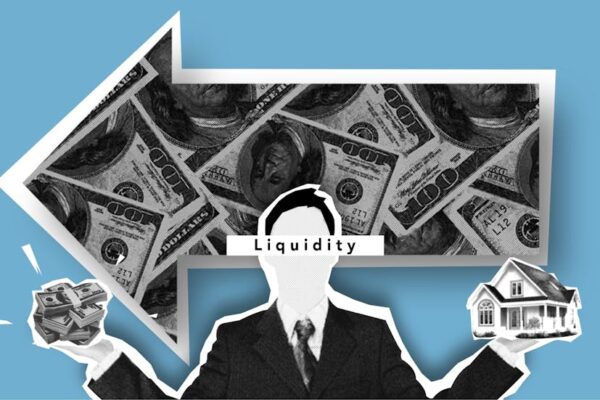How to Finance Closing Costs When Buying or Refinancing Your Home
Closing costs can run into thousands of dollars and are often needed upfront to finalize a home purchase or refinance deal. The down payment alone can empty your life savings, meaning you’ll have nothing left to cover the closing fees.
Luckily, you could agree with the seller to pay the closing fees, or your lender may cover the cost. Similarly, you can finance the closing fees by rolling them into the mortgage amount. The best way to avoid closing fees is to choose a lender who offers no closing cost mortgage. Other options are available, but you may not qualify for them or end up paying more in interest rates.
How to Avoid Closing Costs as a Buyer
If you want to avoid the hefty closing cost, there are a couple of options. First, you need to understand the various fees that come with purchasing a home. Closing costs may include underwriting fees, attorney fees, home appraisal fees, prepaid property taxes, HOA dues, etc. Knowing which closing costs are involved in the purchase gives you an upper hand when exploring ways to cover these costs.
Generally, there are five ways you can use to cover the high upfront closing fees when buying your home. We’ve discussed each of these techniques below.


Consider Seller Concession
Seller concession is a fancy term that means bargaining with the seller and reach an agreement to pay a part or all of the closing costs. Seller concession often works in a buyers’ market, i.e., when there are more homes on offer than buyers, meaning the supply is more than the demand.
Seller concession works quite simple. The aim is to avoid out-of-pocket closing costs. First, you’ll determine the total closing costs associated with buying the property and the amount you want the seller the pay. You’ll then negotiate with the seller and come up with a written agreement. The closing cost is then added to the purchase price to get a new sale price, and the seller pays the agreed amount.
It’s worth noting that the new sale price with the closing cost/seller concession added must not exceed the home’s market value as determined during appraisal. That means you can negotiate for seller concession and get it without a home price hike.
Use Lender Credits
As the name suggests, the lender gives you some credit, which you’ll use to settle the closing fees in exchange for a higher interest rate. In other words, you are buying up the interest rate. While this option will spare you from raising a lot of cash up-front, there’s always a catch. Depending on the mortgage loan you have taken, an increase in rates could run into thousands of dollars over the loan’s period.
Before going for this option, always do your math and see if the interest you are paying is worth the hassle. If not (which is more often the case), you can try a different approach. Instead of using lender credit, you can try the no-closing-cost mortgage, which offers the same benefit but doesn’t come with the high-interest rates hike. This is a rare mortgage feature offered by a few lenders. We’ve covered more about this option below.
Choose a No-Closing-Cost Mortgage
Unlike lender credits, where a high-interest rate replaces the upfront closing costs, no-closing-cost mortgages are slightly different. A lender who offers no closing cost mortgage uses this technique as their competitive advantage. The main difference comes with the interest rates you’ll pay after the lender pays the closing cost.
That means no closing cost mortgage companies aim to lower the total cost of buying a home by eliminating the closing fees, even if it’s a few thousand dollars. Not all lenders advertising no-closing-cost mortgages will save you money in the long run. In fact, many will advertise lender credits as no-closing-cost mortgages.
Use Gift Money
Most mortgage types will allow you to use gift money to cover the closing costs. You can ask your family members or friends to pull their resources for this cause. However, some lenders and loan types may or may not accept the gift money, depending on the source. Others will only accept gift money from close family members, e.g., a parent, grandparent, or siblings. You should inform your loan officer before using gift money to cover closing fees.
Apply for Loans and Grants
If you are buying your home for the first time, you may be eligible for closing cost and down payment assistance programs. Most of these local programs are funded by the U.S. Department of Housing and Urban Development. This means the qualification requirements will often vary. The loans are repayable but often come with low-interest rates, while grants aren’t repayable.


How to Finance Closing Cost into Mortgage
If you can’t avoid the closing costs while purchasing your home, perhaps you can finance it into a mortgage. Not all the closing costs can be rolled into the mortgage when purchasing a home. It often depends on the mortgage type and the type of fee. For instance, you can roll the mortgage insurance premium into a mortgage when using an FHA loan but not the other conventional mortgages.
However, when refinancing your home, you can easily roll the closing cost into the loan amount, provided this doesn’t impact your debt-to-income ratio and the loan-to-value ratio. By rolling the closing cost into the mortgage, you are not avoiding it; instead, you are just paying it with interest throughout the loan period.
That said, not all the closing costs can be rolled into the loan amount. Some that your lender will finance include:
- Credit report fee – A fee charged to the lender for accessing your credit score.
- Loan origination fee – Cost of processing, underwriting, and completing the loan application process.
- Title insurance/ title fees – usually charged by a title company or attorney for the title search. It helps protect you if someone claims ownership of your home later.
Minimize Your Mortgage Cost
Whether buying a home or refinancing your property, closing costs can compromise an otherwise-great mortgage experience. Getting rid of these costs or rolling them into the loan amount can be pretty helpful, especially if you don’t have enough cash left after paying the down payment. Where possible, choose a lender who offers no closing cost mortgage as you’ll benefit from zero closing fees and reasonable interest rates. That way, you’ll minimize the overall mortgage cost.










